Artificial Intelligence (AI) has quickly become an indispensable asset in today's rapidly changing digital marketplace, revolutionizing how businesses engage with customers and streamline operations.
Understanding the nuances of AI UX design is crucial as it's not merely a trend but an indispensable necessity in e-commerce, helping companies tailor highly personalized shopping experiences. while optimizing operations and increasing decision-making processes.
Collaborating with an AI design agency can significantly enhance the capability of e-commerce platforms to analyze vast amounts of customer data through sophisticated algorithms and gain valuable insight into their preferences and behaviors. This capability enables highly tailored product recommendations, helping consumers quickly locate exactly what they're searching for substantially increasing conversion rates, and building loyalty among shoppers.
To stay ahead of the curve, explore the latest AI trends in e-commerce, which highlights how evolving technology is reshaping the industry. - heralding an era of personalized, efficient, and secure digital commerce where personalization, efficiency, and security reign supreme. This section presents AI's multiple impacts on e-commerce from improving customer experiences to driving sales and combatting fraud, underscoring its pivotal place in shaping the future of shopping online.
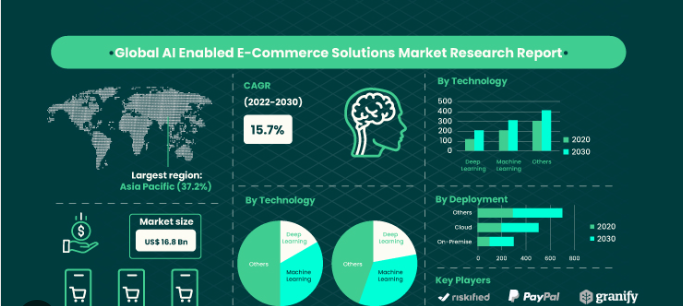
The Rise of AI in E-commerce
Artificial Intelligence (AI) in e-commerce has unleashed an incredible revolution, revolutionizing business operations while simultaneously improving consumer experiences. Advancements in e-commerce tech, particularly AI, allow businesses to delve into complex data, offering personalized shopping journeys. Harnessing its power, e-commerce platforms are now offering recommendations tailored directly to a consumer's browsing habits and purchase history; increasing conversion chances while cultivating loyalty from their customer base.
AI can also enhance operational efficiencies through intelligent inventory management, predictive analytics for demand forecasting, and dynamic pricing strategies that respond in real-time to market needs and competitor pricing - making businesses agile, competitive, and capable of offering value to their customers.

Discover how to use ChatGPT 4 for revolutionizing e-commerce customer service with AI-powered chatbots and virtual assistants within e-commerce. Offering 24/7 assistance with queries, product recommendations, transactions, and transaction facilitation - significantly enriching customer experience!
Exploring innovative solutions from (AI startups) reveals how AI's impact extends to enhancing e-commerce security measures. Through sophisticated algorithms, learn about strategies for fraud prevention in e-commerce, where AI plays a crucial role in detecting suspicious activities- safeguarding both the business and its customers against potential threats.
As AI technology evolves, its integration into e-commerce promises even more innovative solutions that will streamline operations, enhance customer engagement, and drive sales. AI's adoption in retail not only represents a shift towards more intelligent, responsive, customer-centric models but also shows its enormous potential to shape the future landscape of online retailing.
The Impact of AI on E-commerce
In an era where digital transformation is not just a trend but a necessity, Artificial Intelligence (AI) has emerged as a game-changer in reshaping the landscape of e-commerce. The integration of AI technologies has not only streamlined operations but also enhanced customer experiences, marking the beginning of a new chapter in online shopping.
From personalized shopping experiences to sophisticated supply chain management, AI is at the forefront of revolutionizing the e-commerce industry. As we delve into the myriad ways in which AI is influencing e-commerce, it becomes clear that the future of online shopping is being rewritten. Here are some key areas where AI's impact is most profound:
1. Personalized Shopping Experiences
AI-powered recommendation engines transform e-commerce by creating deeply personalized shopping experiences, leveraging algorithms to analyze vast amounts of data including browsing behaviors, purchase history, and preferences. Let's look at some popular case studies:
Amazon Case-study: Amazon is a prime example, where its recommendation engine is estimated to drive 35% of total sales by showcasing products based on previous interactions and purchases. This personalized approach not only boosts sales but also fosters a strong sense of loyalty among customers, as they feel understood and valued.
Netflix Case-study: Netflix's recommendation system, another exemplary implementation, personalizes viewing experiences by analyzing watch histories and ratings. This customization keeps viewers engaged, increasing the likelihood of subscription renewal and contributing to Netflix's low churn rate.
Spotify Case-study: Spotify’s Discover Weekly feature uses AI to curate personalized playlists, introducing users to new songs based on their listening habits. This not only enhances user satisfaction but also encourages exploration within the app, leading to increased user engagement and time spent on the platform.
These case studies highlight the power of AI in crafting personalized experiences that resonate with individual preferences, thereby driving customer loyalty and business growth. By leveraging AI for personalized recommendations, e-commerce platforms can deliver more relevant, engaging content, encouraging repeat visits and fostering a positive, lasting relationship with customers.

2. AI Chatbots and Virtual Assistants
Implementing AI chatbots effectively can revolutionize e-commerce customer service, providing around-the-clock support. These AI-powered tools are an efficient and streamlined way of meeting customer inquiries related to product info, order status updates, and returns - without needing human intervention. 24/7 availability ensures customers receive prompt responses at their convenience, significantly improving customer satisfaction and loyalty.
In addition, AI chatbots are designed to learn from each interaction they experience to deliver increasingly tailored assistance. Tailoring interactions based on individual customer preferences and behaviors makes the shopping experience more engaging and efficient. Chatbots and virtual assistants help businesses enhance customer service operations while gathering useful insights into customer preferences and needs.
These insights can be leveraged to enhance product offerings, marketing strategies, and overall customer experiences. AI chatbots and virtual assistants offer businesses more than customer satisfaction; their cost savings come in the form of automating routine tasks and eliminating customer service teams. AI chatbots and virtual assistants have quickly become indispensable tools in the e-commerce sector by increasing customer engagement, and operational efficiencies and providing insightful data analytics that give businesses an edge in competition.
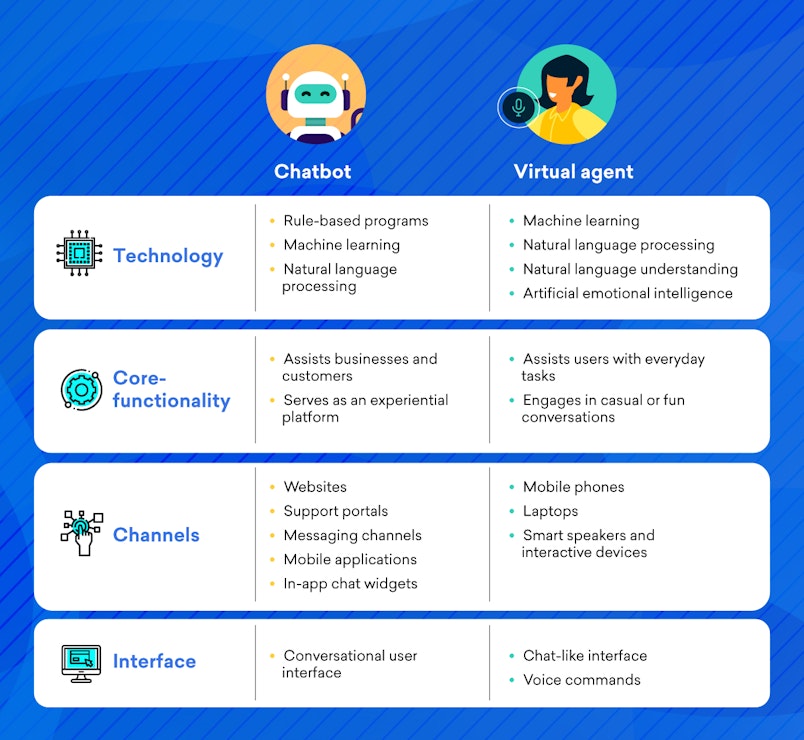
3. Fraud Detection and Prevention
The sophistication of AI in areas like fraud detection mirrors its innovation in other sectors, as seen in AI tools for recruiting, showcasing its versatile application, utilizing complex algorithms to scrutinize transaction data meticulously. These systems are adept at analyzing patterns across a myriad of variables, such as transaction size, frequency, timing, and geolocation, to identify potential fraudulent activities.
By evaluating these elements in real-time, AI can discern irregular behaviors that deviate from established norms, flagging suspicious transactions for further investigation. This precision helps reduce false positives, which can disrupt the shopping experience for legitimate customers.
Furthermore, AI's adaptability ensures that it stays up-to-date on evolving fraud tactics, continuously refining its detection mechanisms to safeguard e-commerce transactions more effectively. The integration of AI in fraud prevention not only enhances transaction security but also builds trust among consumers, fostering a safer e-commerce environment.
As fraudsters become more sophisticated, the importance of AI in preemptively identifying and mitigating potential threats becomes indispensable, ensuring the integrity and reliability of online marketplaces.
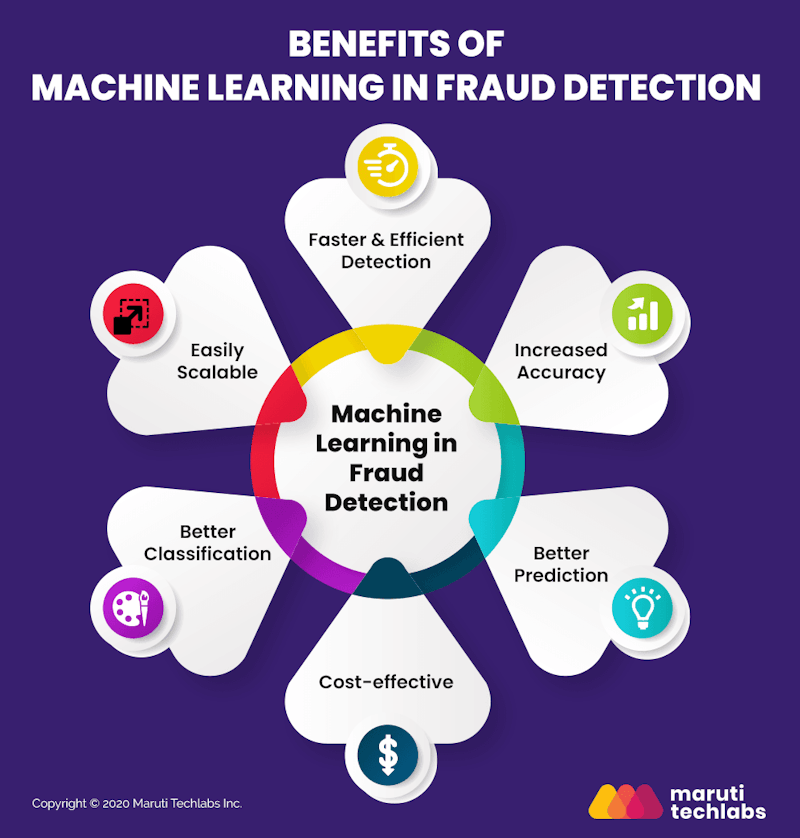
4. Dynamic Pricing Strategies
Keeping up with the AI UX research trend shows how dynamic pricing strategies are refined through AI, allowing real-time adjustments, based on a variety of factors including market demand, competitor pricing, customer behavior, and inventory levels. This sophisticated approach employs machine learning algorithms to analyze large datasets, identifying patterns and trends that inform optimal pricing decisions.
By adapting prices dynamically, companies can enhance their competitiveness and maximize revenue across different market conditions. Dynamic pricing enables businesses to capitalize on high-demand periods by increasing prices, while also attracting more customers during slower periods by reducing prices, thereby optimizing sales and profit margins.
Additionally, it facilitates more effective inventory management, helping businesses to reduce stock levels of slow-moving products through strategic pricing adjustments. This strategy not only ensures businesses stay competitive by offering prices that reflect current market conditions but also improves customer satisfaction by providing fair and transparent pricing.
Ultimately, dynamic pricing powered by AI represents a critical tool for e-commerce and retail businesses aiming to navigate the complexities of the modern marketplace, ensuring they remain agile, responsive, and financially successful.
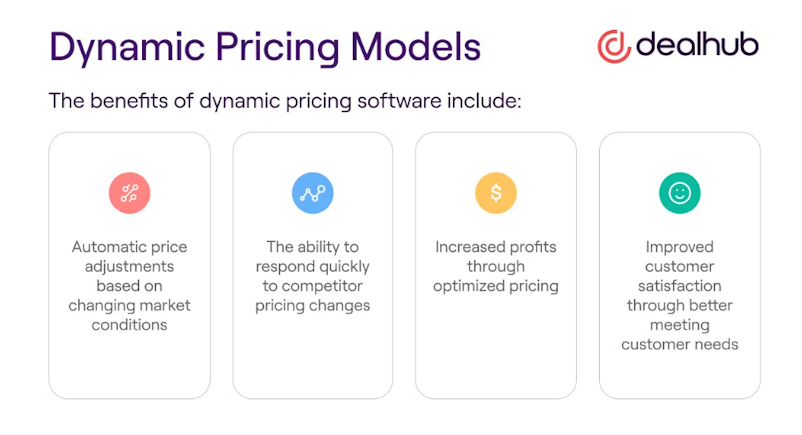
5. AI-Driven Analytics for Business Insights
AI-driven analytics tools in e-commerce leverage complex algorithms to delve deep into customer data, uncovering insights into behavior, preferences, and engagement patterns. By analyzing interactions, purchase history, and browsing habits, these tools offer a granular view of customer journeys, enabling businesses to tailor their offerings and marketing strategies effectively.
Furthermore, AI analytics extends to market trend analysis, providing foresight into emerging shifts and enabling proactive adjustments to product lines and marketing tactics. Operational efficiency is another critical area enhanced by AI analytics, identifying bottlenecks and optimization opportunities in supply chain management, inventory control, and customer service operations.
The crux of AI-driven analytics lies in its ability to facilitate data-driven decision-making, ensuring that e-commerce entities can adapt dynamically to the ever-changing market landscape and consumer expectations, securing a competitive edge and driving sustainable growth.
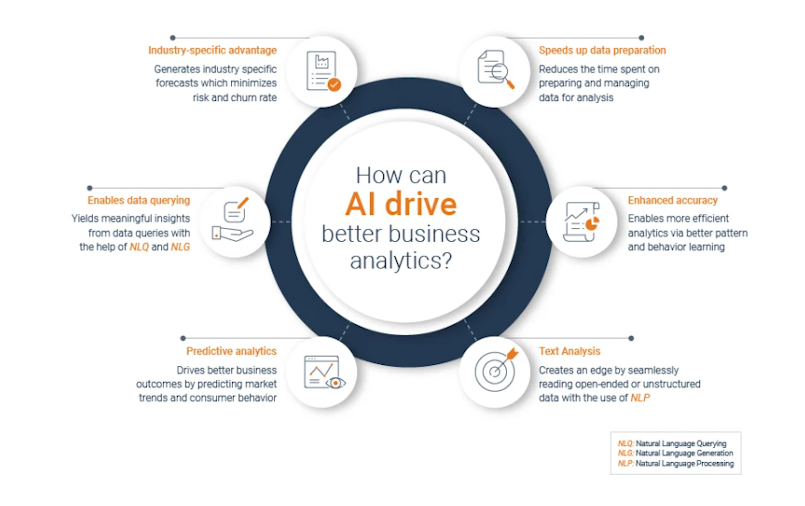
6. Visual Search and Recognition Tools
The advent of visual search and recognition tools marks a significant evolution in how consumers interact with e-commerce platforms, leveraging AI to bridge the gap between physical product discovery and online shopping experiences. This technology allows users to upload images of items they are interested in, which AI then analyzes to find similar or identical products available in online stores.
The convenience and efficiency of visual search reduce the friction typically associated with text-based searches, where discrepancies in product descriptions and consumer terminology can lead to frustrating shopping experiences. Technologies like Google Lens stand out by enabling real-time product searches through image recognition, transforming the way consumers connect with brands and products by simplifying the search process to a mere photo snap.
Moreover, the integration of visual search into e-commerce platforms has not only improved customer satisfaction but also significantly boosted conversion rates for retailers. By providing highly relevant product recommendations based on visual cues, these tools ensure that consumers are more likely to find and purchase products that meet their exact needs and preferences.
The implementation of ViSenze, for instance, showcases how AI-powered visual search engines refine product discovery, offering precise results that closely match the uploaded images. This level of personalization and accuracy in search results fosters a more engaging and satisfying shopping experience, encouraging repeat visits and long-term loyalty among customers.
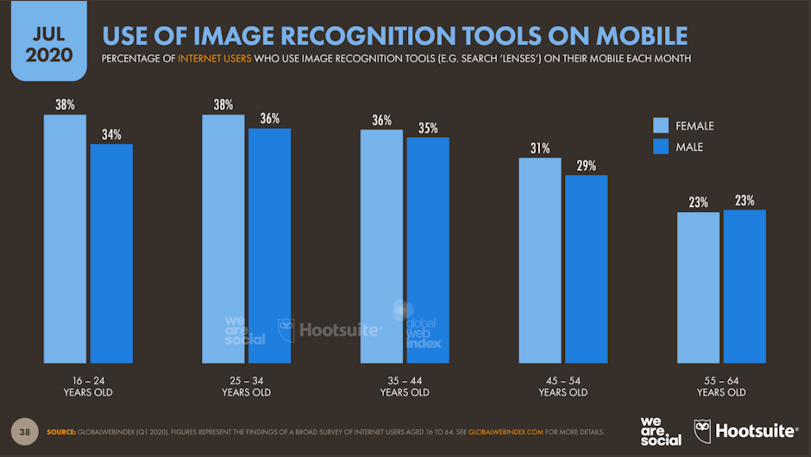
7. Inventory and Supply Chain Management
AI has revolutionized inventory and supply chain management within the e-commerce sector by enabling more accurate demand forecasting, inventory optimization, and overall operational efficiency. Predictive analytics and machine learning algorithms analyze historical sales data, current market trends, and other relevant factors to anticipate future demand with remarkable accuracy.
This foresight allows businesses to maintain optimal inventory levels, minimizing the risks of overstocking or stock shortages, which in turn reduces storage costs and maximizes profitability. Furthermore, AI-driven supply chain management tools facilitate smoother logistics and distribution processes, ensuring timely delivery of products to consumers and enhancing the end-to-end shopping experience.
The strategic application of AI in managing supply chains also extends to improving sustainability practices within the e-commerce industry. By optimizing stock levels and reducing waste, businesses can achieve a smaller carbon footprint, aligning with growing consumer demand for environmentally responsible practices. Additionally, AI-enhanced supply chain operations contribute to a more resilient and adaptable business model, capable of quickly responding to unforeseen disruptions or changes in consumer demand. Tools that embody AI's role in supply chain optimization demonstrate the potential for AI to not only streamline operational efficiencies but also drive significant advancements in sustainability and resilience in the face of global supply chain challenges.
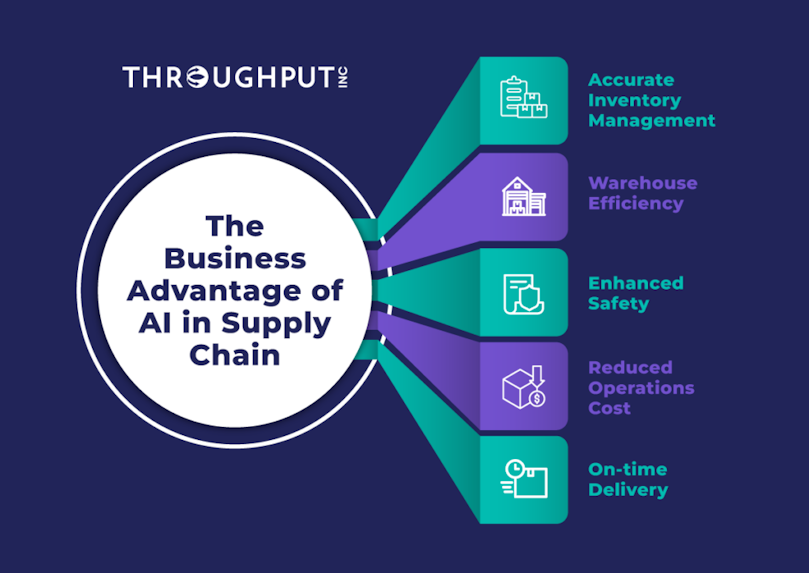
8. Marketing and Sales Automation Tools
In the realm of marketing and sales, AI has introduced unprecedented levels of personalization and efficiency, transforming traditional strategies into highly targeted, dynamic campaigns that resonate with individual consumer preferences.
AI-driven tools analyze vast amounts of data on consumer behavior, purchase history, and engagement patterns to segment audiences and predict future buying behaviors. This allows for the automation of personalized marketing campaigns that are significantly more effective in driving conversions and building customer loyalty.
For e-commerce businesses, this means being able to deliver the right message, to the right customer, at the right time, enhancing the relevancy and impact of their marketing efforts.
Furthermore, AI's role in marketing and sales automation extends beyond customer acquisition and conversion to include customer retention and loyalty-building initiatives. By leveraging predictive analytics and machine learning, e-commerce platforms can create highly customized engagement strategies that encourage repeat purchases and increase lifetime customer value.
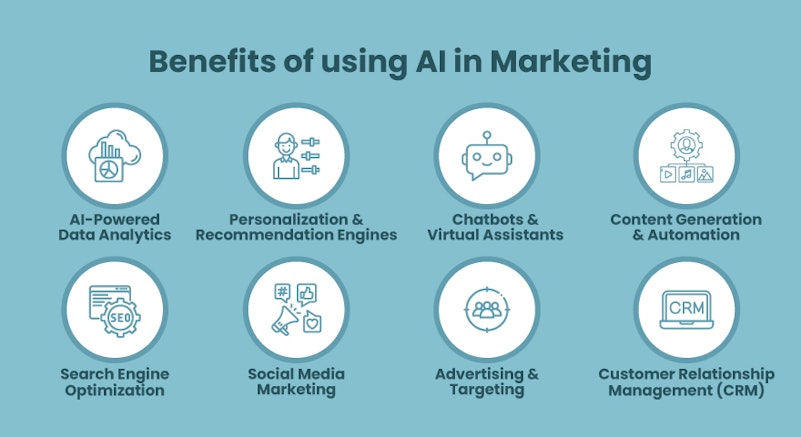
5 Steps to Implementing AI in Your E-commerce Business
To effectively implement AI in your e-commerce business, expanding on the foundational steps can ensure a comprehensive integration strategy that leverages AI to its full potential:
1. Conducting a Thorough Needs Analysis
Begin with an in-depth analysis of your business processes to pinpoint specific areas where AI can introduce efficiencies, enhance customer engagement, or drive revenue growth.
This could involve mapping out customer journeys to identify friction points that AI can smooth over, such as by offering personalized recommendations or automating customer service interactions. The goal here is to target AI implementations that address real needs and can deliver measurable improvements in performance or customer satisfaction.
2. Choosing the Right AI Technologies and Partners
Selecting the appropriate AI technologies and partners is critical to the success of AI integration within your e-commerce operations. Look for AI solutions that are not only advanced but also compatible with your existing infrastructure to ensure seamless integration. It's important to partner with vendors who have a proven track record in e-commerce and who understand the nuances of online retail.
These partners should offer scalable solutions that can grow with your business and adapt to changing market dynamics. Additionally, consider the total cost of ownership, including not just the initial investment but also long-term costs related to maintenance, updates, and support.
3. Educating Your Team on AI Capabilities
The role of your team in the successful adoption of AI cannot be overstated. Comprehensive education on the capabilities and potential applications of AI is essential. This could involve formal training programs, workshops, or bringing in external experts to share insights on the latest AI trends and techniques.
Encouraging a culture of continuous learning and innovation will empower your employees to identify opportunities for AI to add value. Furthermore, understanding AI's capabilities will enable your team to more effectively interpret the insights generated by AI tools, leading to better decision-making.
4. Gradual Implementation and Monitoring
Introducing AI into your e-commerce operations should be a phased process, starting with pilot projects or specific use cases that can provide quick wins or valuable learnings. This approach allows you to test and learn from AI deployments in a controlled manner, minimizing risk and enabling adjustments before wider rollouts.
Monitoring the performance of AI initiatives through clear metrics is crucial to understanding their impact and identifying areas for improvement. Metrics could include conversion rates, customer retention, average order value, or efficiency gains in operations.
5. Staying Abreast of AI and E-commerce Trends
The AI landscape is rapidly evolving, with new technologies and applications emerging regularly. Staying informed about these developments is crucial for ensuring that your e-commerce business remains competitive and is able to leverage AI effectively.
This might involve subscribing to industry newsletters, attending relevant conferences, or participating in online forums and communities. Continuously refining and adapting your AI strategy in response to new insights and market trends will help maintain the relevance and effectiveness of your AI initiatives.
By following these expanded steps and continuously seeking to understand and leverage AI within the context of your e-commerce business, you can unlock significant value, driving innovation, efficiency, and growth in an increasingly competitive digital marketplace.
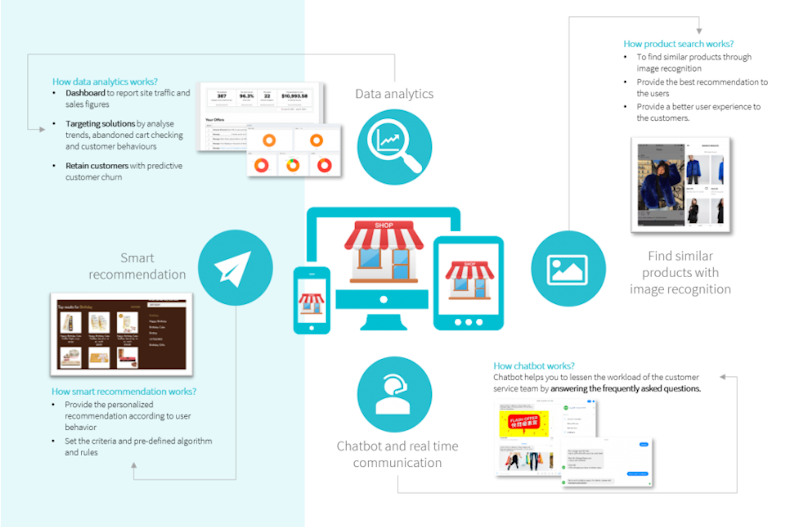
Future Outlook
Artificial Intelligence (AI) in e-commerce is revolutionizing the industry, providing more tailored shopping experiences, customer support through chatbots, fraud detection strategies, and dynamic pricing strategies; all while providing actionable business insights.
These advancements provide businesses with tools to better engage and understand their customers, streamline operations, and safeguard transactions. Future developments suggest AI will play an even larger role in e-commerce, with innovations in machine learning and data analytics fueling further personalization, efficiency, and security.
AI promises to transform e-commerce into an adaptive, customer-centric industry - offering businesses unparalleled precision when meeting consumer needs.
Conclusion
Embrace the transformative power of AI in your e-commerce strategy to stay ahead in the competitive digital marketplace. AI technologies offer unparalleled opportunities for personalization, efficiency, and customer engagement.
Consider exploring the wide range of AI tools available and engaging with professional services to tailor AI solutions that align with your business goals. Taking this step towards AI integration can significantly enhance your operational capabilities and provide your customers a more satisfying shopping experience.





